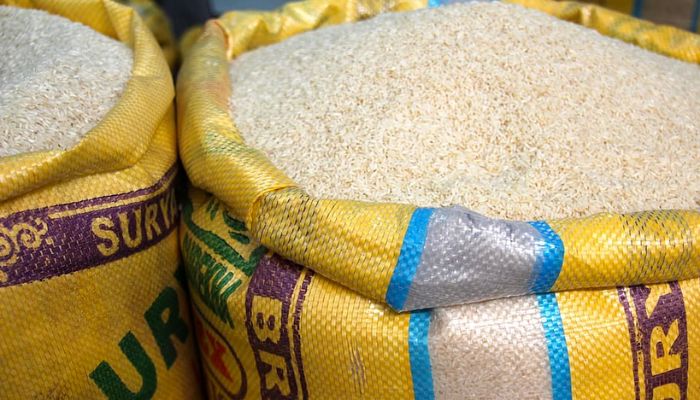An Economic Analysis of the Cost of Rice in Nigeria: What Influences the Price?
An Economic Analysis of the Cost of Rice in Nigeria: What Influences the Price?
Rice is an important staple food in Nigeria, providing essential nutrients to millions of people. The price of rice has a major impact on people’s lives, as it affects their ability to access food, as well as the overall economy of the country. An economic analysis of the cost of rice in Nigeria can provide important insights into the factors that influence its price. It can also help to identify strategies to ensure that the price remains affordable and accessible to all. This analysis will look at the various factors that affect the price of rice in Nigeria and how they interact with each other. It will also examine the impact of government policies on the price of rice and explore potential solutions to reduce the cost. By understanding the economic factors that influence the price of rice in Nigeria, we can work to ensure that everyone has access to affordable and nutritious food.
Overview of Rice in Nigeria
Rice is a staple food in many countries around the world, including Nigeria. It is the most widely consumed food in the country, with around 80% of the population eating rice on a regular basis. The main reason for this is that rice provides essential nutrients, such as vitamins and minerals, and it is also a good source of protein. It also has a low glycemic index and is therefore suitable for diabetics. Rice is eaten in many ways in Nigeria. It is usually served plain with a side of beans or fish, or it can be made into a variety of delicious dishes. In addition to being a major part of the diet, rice is also an important part of Nigerian culture. It is customary to serve rice at celebrations and special events, such as weddings and funerals. Rice is produced in large quantities in Nigeria, but it is a major importer of the commodity.
Economic Factors that Influence the Price of Rice in Nigeria
There are a number of economic factors that influence the price of rice in Nigeria. The most important factors include supply and demand, government policies, cost of production, imports and exports.
a. Supply and Demand
The supply and demand of rice in Nigeria directly influences its price. Rice is a commodity, so its price is determined by the forces of supply and demand. If there is an increase in demand for rice, the supply of the commodity will decrease. This means that, to meet the higher demand for rice, the price will increase. Similarly, if there is an increase in supply of rice, the demand for the commodity will decrease. This means that the price will decrease as less rice is needed to meet the lower demand. Since the supply and demand for all commodities are constantly changing, the price of rice will also be very fluid and constantly changing. This means that, at any given moment, the price of rice will be different in various parts of the country. There are various factors that can affect the supply and demand of rice in Nigeria. For example, extreme weather conditions in major growing areas can significantly reduce the supply of rice and result in higher prices.
b. Government Policies
Government policies can also significantly affect the price of rice in Nigeria. The government may put tariffs (taxes) on imported goods, which will make them more expensive. Tariffs are often placed on goods that are produced domestically, to protect local businesses and encourage people to buy local products. A government may impose tariffs on imported goods to generate revenue for the government. In some cases, the government may set a minimum price for goods, such as rice, to protect consumers. This can be done to protect consumers from high prices, or it may be done to protect local businesses that produce goods at a lower cost. Minimum price policies can have unintended consequences and can sometimes backfire, especially in developing countries where the government may not have the resources to enforce these policies.
c. Cost of Production
The cost of production of rice in Nigeria will also have an impact on its price. For example, if the cost of fertilizer or water needed to grow rice is high, it will increase the price of rice. Many factors influence the cost of production of rice, including the type of rice planted and the weather conditions at the time of planting and harvesting.
d. Imports and Exports
Imports and exports of rice also play a role in the price of rice in Nigeria. If imports exceed exports, then there will be a shortage of rice in Nigeria. A shortage of a product generally results in a higher price for that product, as there is less supply than demand. Similarly, if exports of rice exceed imports, there will be an excess of rice in the country. This means that there is more supply than demand, and the price of rice will decrease.
Impact of Rice Prices on the Nigerian Economy
The price of rice has a huge impact on the overall economy of Nigeria, as it is a major staple food that many people rely on for nutrition. In fact, around 45% of the country’s population live below the poverty line, and over a third of the rural population is undernourished. The high cost of food, including rice, is a major cause of this, and stable and affordable food prices are critical for people to thrive. When the price of rice is high, many people are left struggling to meet the cost. This often means that people must choose between spending money on nutritious food or other essentials, such as shelter and clothing. When people can’t afford nutritious food, they are at risk of developing health issues. A stable price of rice would be helpful, as it would be a significant help to many people, especially those who are most at risk.
Potential Solutions to Reduce the Cost of Rice in Nigeria
There are a number of potential solutions to reduce the cost of rice in Nigeria. The government can play a key role by intervening to help stabilize the price of rice. This can be done by imposing tariffs on imported rice or subsidies on locally produced rice. One way to reduce the cost of rice is to increase production and use of local varieties of rice. Other ways are to increase the use of irrigation and fertilizer, and the use of mechanized farming. The government can also help to stabilize the price of rice by setting a minimum price at which it should be sold. Another potential solution is to collaborate with other countries in the region to create a single market for rice. This would allow countries to import more rice from each other and reduce the dependence on imports from other countries, especially in times when there is a shortage of supply.
Conclusion
The price of rice has a significant impact on the economy of Nigeria, as well as the health and wellbeing of its population. An economic analysis of the cost of rice in Nigeria can help to identify the factors that influence its price and offer insights into potential solutions to reduce the cost. The most important factors that influence the price of rice in Nigeria are the supply and demand, government policies, cost of production, imports and exports. The government can play a key role by intervening to help stabilize the price of rice.








LEAVE A COMMENT
You must be logged in to post a comment.